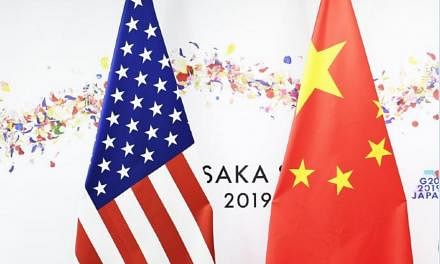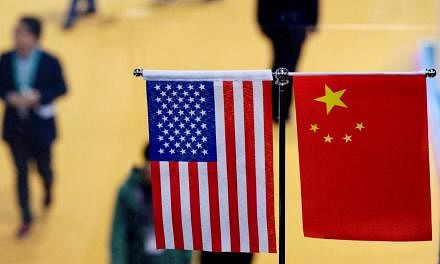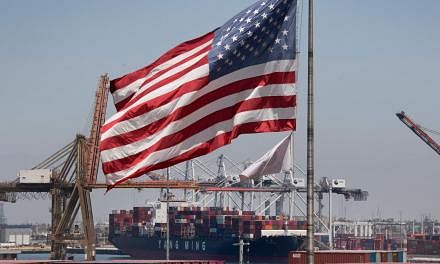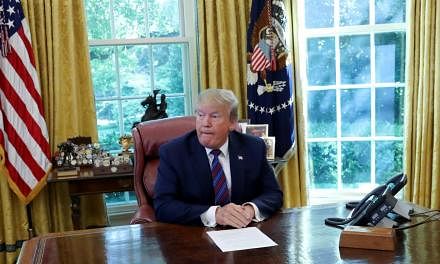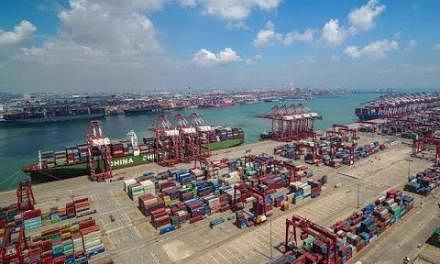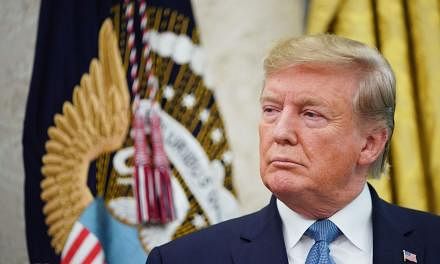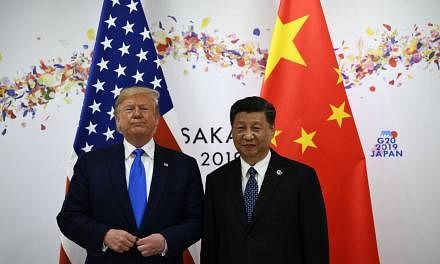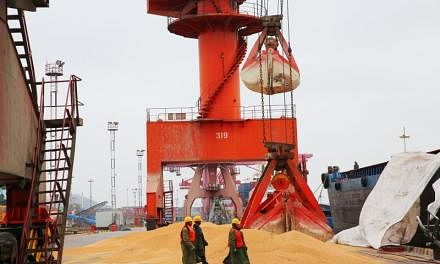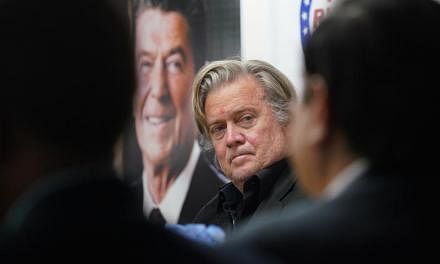SINGAPORE - The Singapore government is ready to act should the economic outlook worsen as a result of escalating tensions between the US and China, even as it remains focused on ongoing efforts to diversify the economy, enhance innovation capacity and reskill its workforce, Minister-in-charge of Trade Relations S. Iswaran said on Sunday (May 19).
Asked if there were contingency plans to be rolled out for employees should the economic outlook worsen and retrenchments occur, Mr Iswaran, who is also Minister for Communications and Information, noted that "it is a bit too early to talk about this." However, if there were a need, at the appropriate time, the agencies would come together and the government would focus on what needs to be done, he said.
"We continue to hope that the US and China work out their differences, and are therefore able to come to an equilibrium and not pose the kind of concerns some are worried about arising from trade tensions," he said on the sidelines of the Buddhist Fellowship's Vesak Day celebration. "At the same time, we focus on fundamentals and capacity building of the economy."
Dealing with such uncertainties is not new for Singapore, Mr Iswaran noted.
"That is why the government has always emphasised the need to focus resolutely on our fundamentals at the economy, enterprise and individual levels. And we must continue to strengthen our cohesive and harmonious society," he said "Against this backdrop, it is essential that all of us - government, industry and Singaporeans - work together for Singapore's continued success, ensuring that we continue to thrive, notwithstanding uncertainties that may come our way."
Singapore will continue to diversify its markets through free-trade agreements (FTA) at the bilateral, regional and multilateral levels, whether it is with the World Trade Organisation (WTO), regional platforms like the Regional Comprehensive Economic Partnership (RCEP) or the Comprehensive and Progressive Agreement for Trans-Pacific Partnership (CPTPP), or bilateral efforts such as those with the European Union (EU) and more recently, New Zealand.
There is also a need to diversify Singapore's industry and economic base so it is strong in manufacturing and services and trade-related services, while continuing to find new opportunities. "The digitalisation of the economy provides us with new types of opportunities," he said.
Ensuring that the capabilities of local companies and industries continue to be strengthened and their innovation capacity enhanced is "the surest way of ensuring we remain competitive and able to withstand vicissitudes in the global economic environment," he added.
At the people level, having the skills and attitude towards lifelong learning that ensures one can be nimble in the face of change will allow Singaporeans to adapt and respond to new challenges effectively, he noted.
These efforts to get the fundamentals right are critical as US-China tensions are likely to linger for some time and businesses must be prepared for more uncertainty and volatility.
"What we're seeing ... is in some ways symptomatic of what some have characterised as a great power rivalry between the two largest economies in the world," he said. "It's important for us to understand that this is something that goes beyond the immediate trade tensions, and it is something that is likely to be in our background environment for some time to come, thereby creating uncertainty and volatility that we must be prepared for."
In his speech to more than 300 devotees at the Buddhist Fellowship's celebration, Mr Iswaran pointed to challenges arising from irresponsible speech and falsehoods, such as hate speech that has been "weaponised to instigate violence and anger among religious groups."
To curb this, the Protection from Online Falsehoods and Manipulation Act was passed a few weeks ago. But he stressed that legislation alone is not enough, and a "all of nation effort", with public education, fact-checking and efforts to build understanding between communities were needed.
"The bonds and trust that develops out of these interactions go a long way in preventing misunderstanding and divisions between groups, especially in light of the spread of online falsehoods and disinformation," he said.


